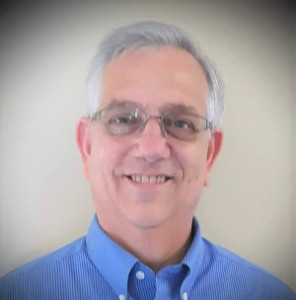A portion of Abraham Lincoln's Last Public Address; Washington, D.C. April 11, 1865
Description
Vocal Characteristics
Language
EnglishVoice Age
Middle Aged (35-54)Accents
North American (General) North American (US General American - GenAM) North American (US South)Transcript
Note: Transcripts are generated using speech recognition software and may contain errors.
we meet this evening not in sorrow but in gladness of heart. The evacuation of Petersburg and Richmond and the surrender of the principal insurgent army give hope of a righteous and speedy piece whose joyous expression cannot be restrained in the midst of this, however, he from whom all blessings flow must not be for gotten a call for a national Thanksgiving is being prepared and will be duly promulgated. Nor must those whose harder part gives us the cause of rejoicing be overlooked. Their honors must not be parceled out with others. I myself was near the front and had the high pleasure of transmitting much of the good news to you. But no part of the honor for plan or execution is mine. To General Grant, his skillful officers and brave men all belongs. The gallant Navy stood ready but was not in reach to take active part. By these recent successes, the re inauguration of the National Authority Reconstruction, which has had a large share of thought from the first, is pressed much more closely upon our attention. It is fraught with great difficulty. Unlike a case of a war between independent nations, there is no authorized organ for us to treat with. No one man has authority to give up the rebellion for any other man we simply must begin with and mold from disorganized and discordant elements. Nor is it a small additional embarrassment that we, the loyal people, differ among ourselves as to the mod manner and means of reconstruction. As a general rule, I abstained from reading the reports of attacks upon myself. We've seen not to be provoked by that to which I cannot properly offer an answer. In spite of this precaution, however, it comes to my knowledge that I am much censored for some supposed agency in setting up and seeking to sustain the new state government of Louisiana. In this, I have done just so much as, and no more than the public knows. In the annual message of December 18 63 and accompanying Proclamation, I presented a plan of reconstruction as the phrase goes, which I promised, if adopted by any state should be acceptable to and sustained by the executive government of the nation. I distinctly stated that this was not the only plan which might possibly be acceptable, and I also distinctly protested that the executive claimed no right to say when or whether members should be admitted. Two seats in Congress from such states. This plan waas in advance, submitted to the then cabinet and distinctly approved by every member of it. One of them suggested that I should then and in that connection apply the Emancipation Proclamation to the there to four accepted parts of Virginia and Louisiana. That I should drop this suggestion about apprenticeship for freed people and that I should omit the protest against my own power in regard to the admission of members to Congress. But even he approved every part and parcel of the plan, which has since been employed or touched by the action of Louisiana. The new constitution of Louisiana declaring emancipation for the whole state practically applies the proclamation to the part previously accepted. It does not adopt apprenticeship for freed people, and it is silent as it could not well be otherwise about the admission of members to Congress. So that is, it applies to Louisiana. Every member of the Cabinet fully approved the plan. The message went to Congress, and I received many commendations of the plan, written and verbal and not a single objection to it from any professed emancipation ist came to my knowledge until after the news reached Washington that the people of Louisiana had begun to move in accordance with it. From about July 18 62 I had corresponded with different persons supposed to be interested, seeking a reconstruction of a state government for Louisiana. When the message of 18 63 with the plan before mentioned reached New Orleans General Banks wrote me that he was confident the people with his military cooperation would reconstruct substantially on that plan. I wrote him and some of them to try it. They tried it, and the result is known. Such only has been my agency in getting up the Louisiana government as to sustaining it, my promises out as before stated. But as bad promises are better broken than kept, I shall treat this as a bad promise and break it whenever I shall be convinced that keeping it is adverse to the public interest. But I have not yet been so convinced. I have been shown a letter on this subject, supposed to be an able one in which the writer expresses regret that my mind has not seemed to be definitely fixed on the question whether the succeeding state's so called are in the union or out of it. It would perhaps add astonishment to his regret were he to learn that since I have found professed union men endeavoring to make that question, I have purposely four born any public expression upon it. As it appears to me, that question has not been nor yet is a practically material one, and that any discussion of it while you thus remains practically in material could have no effect other than the mischievous one of dividing our friends as yet, whatever it may hereafter become, that question is bad as the basis of a controversy and good for nothing at all, a merely produce ius abstraction.
